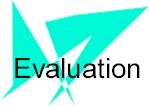





 A website created for families
who want to know more about the assessment process!
A website created for families
who want to know more about the assessment process!
|
|
|
Common Types of Tests
Group Tests of Intellectual Performance This is a type of test used to measure a studentís intelligence and intellectual potential. Intelligence tests can be administered to groups of students or to students individually. Individual tests of intellectual performanceThese tests are administered to students individually. There are five common individual intelligence tests. Some tests are aimed at measuring a studentís classroom behavior. Included in the term "classroom behavior" is the studentís conduct within the school setting, response to school rules, interpersonal relationships with teachers and other students, and self-concept and attitude toward school. Tests to measure classroom behavior are usually in the form of checklists and rating scales, both of which require observations to be completed. Types of related tests can be organized into five categories: classroom behavior and social-emotional development, attention disorders and hyperactivity, self-concept, peer acceptance, and school interests and attitudes.
|
|
|
Home | Background|
Pre-K | Elementary | Secondary
| Post-Secondary
|